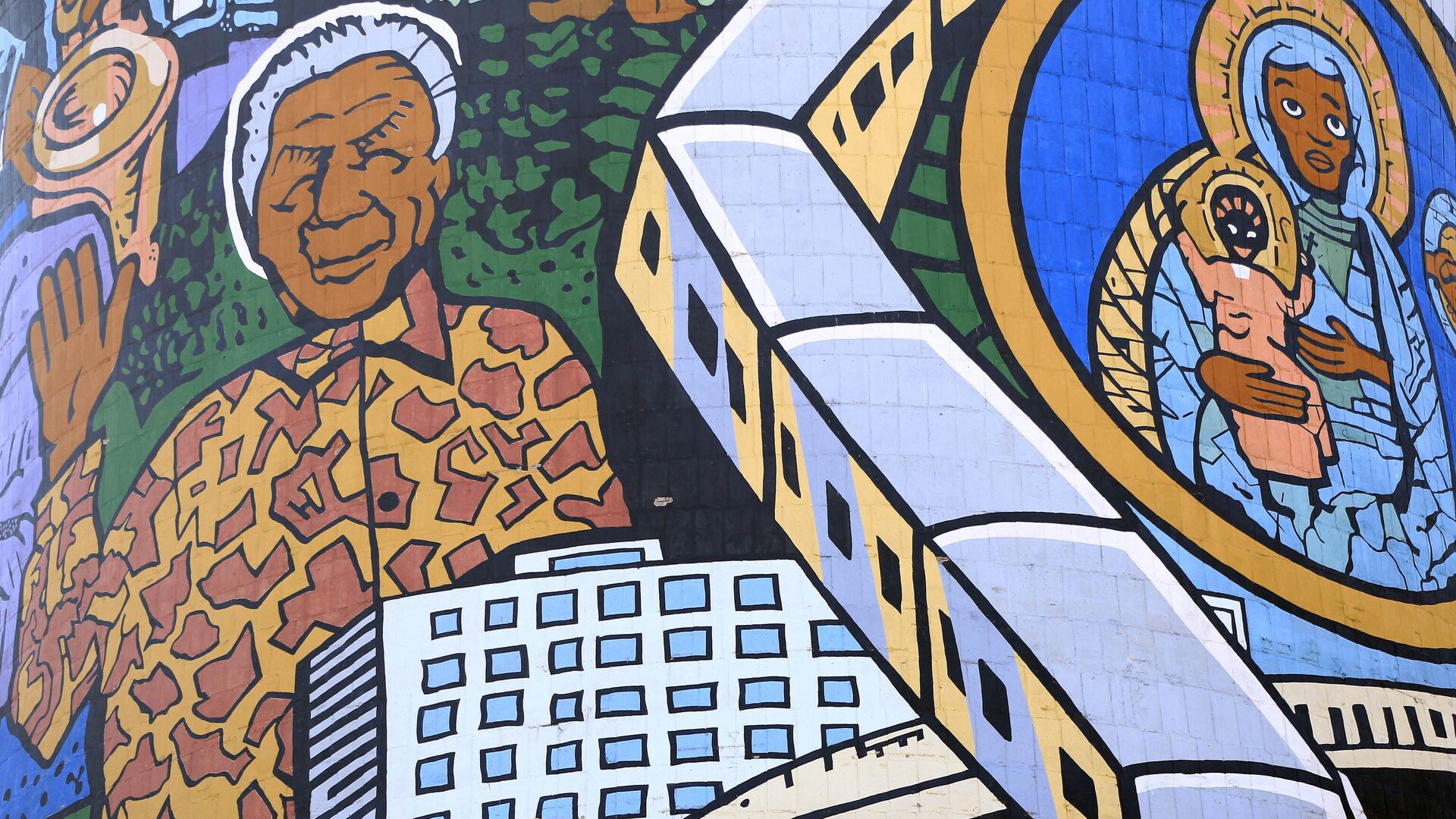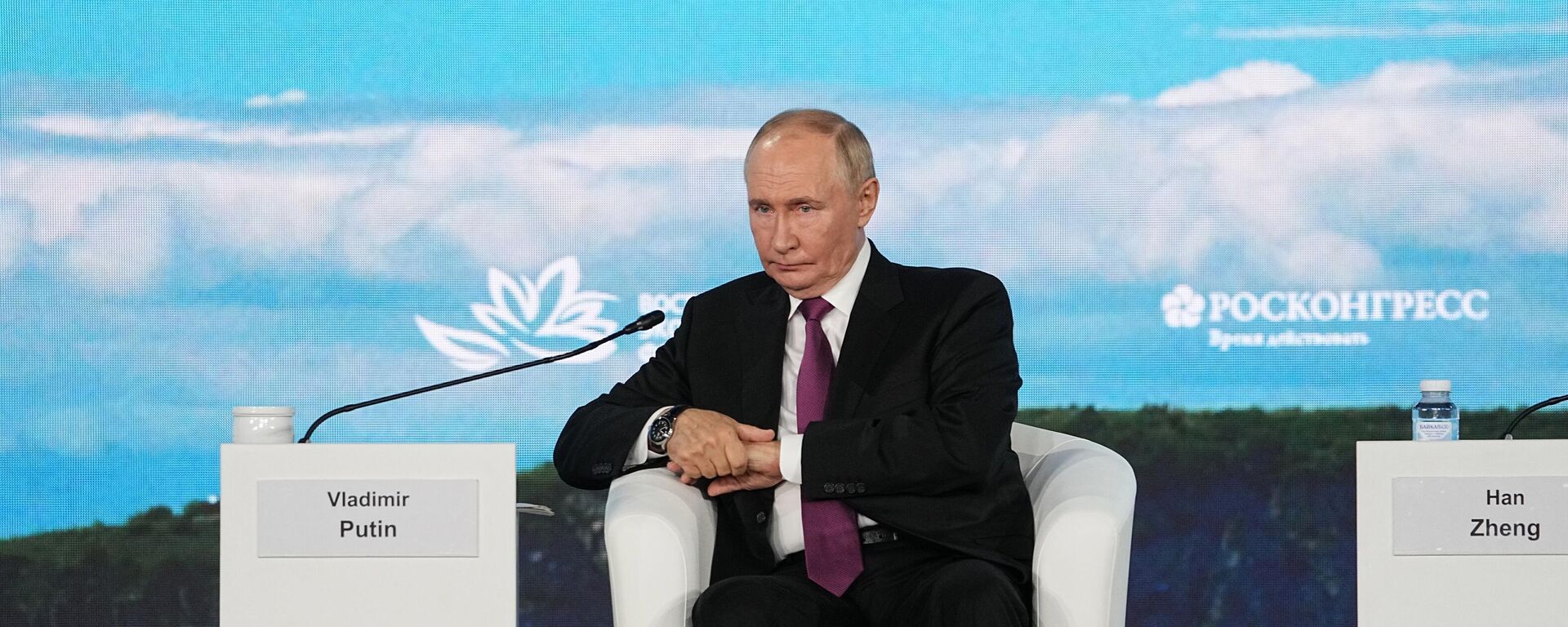https://en.sputniknews.africa/20240906/1068174100.html
Anti-Imperialist Struggle of 20th Century Continued by BRICS Bloc, Mandela's Grandson Says
Anti-Imperialist Struggle of 20th Century Continued by BRICS Bloc, Mandela's Grandson Says
Sputnik Africa
Speaking at the Eastern Economic Forum in Vladivostok on Thursday, President Putin, Vice Premier Han of China, and Prime Minister Anwar of Malaysia discussed... 06.09.2024, Sputnik Africa
2024-09-06T17:31+0200
2024-09-06T17:31+0200
2024-09-06T18:13+0200
opinion
nelson mandela
vladimir putin
anwar ibrahim
south africa
china
malaysia
eastern economic forum (eef)
brics
brics expansion
https://cdn1.img.sputniknews.africa/img/07e8/09/06/1068174279_0:160:3072:1888_1920x0_80_0_0_9e5a14654b0dd4167edaf1dbb937b88d.jpg
The BRICS countries’ push to topple the unipolar hegemony of the United States and its allies in world affairs is reminiscent of the anti-imperialist and national liberation struggles of the 20th century, and as before, South Africa is again playing a crucial part in the creation of a new multipolar world order, says Nkosi Zwelivelile Mandela, a senior South African lawmaker and the grandson of late anti-Apartheid leader-turned-president Nelson Mandela.“Many countries do not want to continuously be bowing down to their colonial masters and settler colonialists” today, Mandela said, pointing to the example of the Palestinians and their struggle for liberation and statehood.“What is the alternative? The alternative is to move away from the Western, imperialist hegemony and, the unipolar system and ensure that each country can be able to be equally represented in the international and global community,” the lawmaker stressed.Commenting on Zimbabwe and Malaysia’s prospects for entry into BRICS+, Mandela stressed that “we would want to expand the representation of Latin America, perhaps with the likes of Cuba, Colombia and Venezuela,” as well.Speaking at Thursday’s plenary session of the Eastern Economic Forum, Russian President Vladimir Putin said Moscow’s relations with the BRICS were “developing very successfully,” and that over 30 countries have expressed interest in cooperating with or joining the bloc, with all prospective members “self-sufficient, with rapidly developing economies, their own distinctive culture, and very interesting governments.”For his part, Malaysian Prime Minister Anwar Ibrahim told Russian media on the sidelines of the forum that BRICS was not only a key tool for reducing dependence on the dollar, but “a very important vehicle to strengthen…collaboration among countries in the Global South,” including “to contain the onslaught of other richer industrialized countries and to be able to at least withstand the pressure and together build up the force.”
https://en.sputniknews.africa/20240905/global-business-links-trade-routes-being-reoriented-to-east-global-south-putin-says-1068152926.html
south africa
china
malaysia
Sputnik Africa
feedback@sputniknews.com
+74956456601
MIA „Rossiya Segodnya“
2024
News
en_EN
Sputnik Africa
feedback@sputniknews.com
+74956456601
MIA „Rossiya Segodnya“
Sputnik Africa
feedback@sputniknews.com
+74956456601
MIA „Rossiya Segodnya“
nelson mandela, vladimir putin, anwar ibrahim, south africa, china, malaysia, eastern economic forum (eef), brics, brics expansion, brics summit 2024, brics plus, brics summit, africa in details
nelson mandela, vladimir putin, anwar ibrahim, south africa, china, malaysia, eastern economic forum (eef), brics, brics expansion, brics summit 2024, brics plus, brics summit, africa in details
Anti-Imperialist Struggle of 20th Century Continued by BRICS Bloc, Mandela's Grandson Says
17:31 06.09.2024 (Updated: 18:13 06.09.2024) Speaking at the Eastern Economic Forum in Vladivostok on Thursday, President Putin, Vice Premier Han of China, and Prime Minister Anwar of Malaysia discussed the role of the BRICS+ bloc in fostering a more equitable and free world. Nelson Mandela's grandson discussed his country's part in this process in an interview with Sputnik.
The BRICS countries’ push to topple the unipolar hegemony of the United States and its allies in world affairs is reminiscent of the anti-imperialist and national liberation struggles of the 20th century, and as before, South Africa is again playing
a crucial part in the creation of a new multipolar world order, says Nkosi Zwelivelile Mandela, a senior South African lawmaker and the grandson of late anti-Apartheid leader-turned-president Nelson Mandela.
“We not only defeated the Apartheid regime in South Africa, but we defeated its allies as well. You know that the United Kingdom through Margaret Thatcher as well as the United States of America through Ronald Reagan’s administration supported the Apartheid regime to the hilt. But our friends, through our darkest days in the struggle for liberation, like Russia, China and many others in the international solidarity movement who rallied behind the anti-Apartheid campaign, ensured that they gave full support to our cause to defeat the Western imperialist agenda. And what we are seeing in multipolarity is a continuation of that,” Mandela told Sputnik on the sidelines of the Eastern Economic Forum on Thursday.
“Many countries do not want to continuously be bowing down to their colonial masters and settler colonialists” today, Mandela said, pointing to the example of the Palestinians and their struggle for liberation and statehood.
“What is the alternative? The alternative
is to move away from the Western, imperialist hegemony and, the unipolar system and ensure that each country can be able to be equally represented in the international and global community,” the lawmaker stressed.
“We firmly believe that we are beginning to see, particularly through the BRICS+ family of countries…[an] alternative to the unipolar system” dominated by the West, Mandela added, stressing the importance of South Africa’s role hosting the BRICS Summit in Johannesburg in 2023, at which the bloc’s doors were opened to new members.
Commenting on Zimbabwe and
Malaysia’s prospects for entry into BRICS+, Mandela stressed that “we would want to expand the representation of Latin America, perhaps with the likes of Cuba, Colombia and Venezuela,” as well.
Speaking at Thursday’s plenary session of the Eastern Economic Forum, Russian President Vladimir Putin said Moscow’s relations with the BRICS were
“developing very successfully,” and that over 30 countries have expressed interest in cooperating with or joining the bloc, with all prospective members “self-sufficient, with rapidly developing economies, their own distinctive culture, and very interesting governments.”
For his part, Malaysian Prime Minister Anwar Ibrahim told Russian media on the sidelines of the forum that BRICS was not only a key tool for reducing dependence on the dollar, but “a very important vehicle to strengthen…collaboration among countries in the Global South,” including “to contain the onslaught of other richer industrialized countries and to be able to at least withstand the pressure and together build up the force.”


